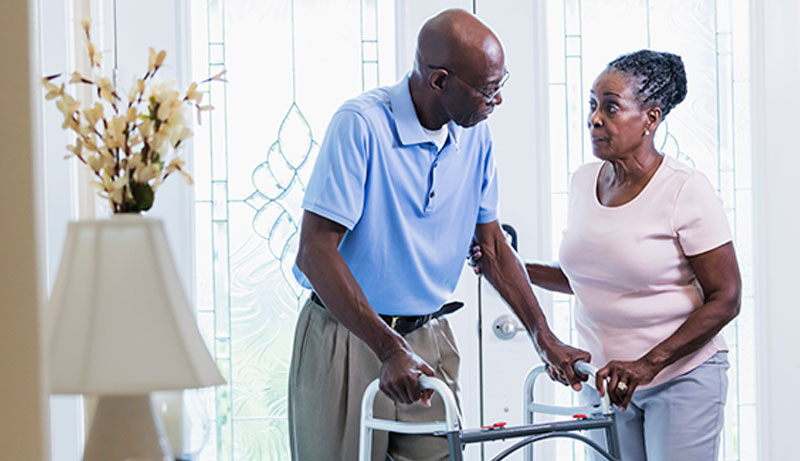
Parkinson’s care moves to a whole new level as the disease progresses.
A Parkinson’s disease diagnosis has an effect on family members along with the person experiencing this illness. Understanding what to expect as the disease progresses is paramount to being prepared for the changes to come and also to making life the best it can be each day.
Over the last couple of months, we have published blog posts about what to expect in the early and middle stages of Parkinson’s disease. Information has included what family caregivers can do to best assist a family member with Parkinson’s and how Anthem Home Care, a leader in professional home care in Taft, TX and surrounding areas, can help. In this closing segment in the series, we offer advice about Parkinson’s care for someone in the late stages of this illness.
Later Stage Parkinson’s
In the late stages of Parkinson’s, a higher degree of assistance is necessary with the activities of everyday living. By definition, the late stages of Parkinson’s are noted by the person’s inability to live independently. At first, walking and standing may perhaps still be possible, but with noticeable struggle, and as the disease continues to advance, the individual will not be capable of getting out of bed or a chair unassisted.
Alongside a greater risk for falls, hallucinations and delusions can also be common. As a result, full-time, day-and-night care is important to ensure safety.
The Effect of Late Stage Parkinson’s on Family Care Providers
At this point, the stress and everyday expectations of caregiving may take a toll on a family caregiver’s own health. It is crucial for family caregivers to reach out and accept support, to stay socially connected, and to make respite care a top priority. It is just not feasible for one individual exclusively to handle the around-the-clock care necessary for a loved one in late stage Parkinson’s.
How Care Providers Can Assist with Late Stage Parkinson’s Care
With increased hands-on care necessary, it is essential as a family member to learn how to properly and effectively provide this help so that you can reduce the possibility of doing harm to either yourself or the person being cared for.
If the loved one with Parkinson’s isn’t already receiving physical therapy services, ask the doctor for a referral. The physical therapist, while helping maximize the person’s ability level, may also advise family caregivers on the most useful techniques for hands-on assistance.
One new symptom that often develops in the later stages of Parkinson’s is freezing, when the person is suddenly (but temporarily) not able to move. Ways to help break a freezing episode include:
- Using a laser pointer and asking the person to step on the light
- Utilizing a rhythmic noise, such as clapping, and encouraging the individual to take a step with each clap
- Playing songs and prompting the individual to walk to the beat
As always, stay close at hand when the individual is mobile to avoid a fall.
Make sure to provide an abundance of extra time for day-to-day activities such as getting dressed and eating, which are likely to take more time now. This is important in preserving the person’s self-sufficiency. Even if it requires longer to accomplish a daily task, it is always better to foster as much self-reliance as you possibly can.
Emotional and mental health issues also may develop now, including depression, memory problems, anxiety, and dementia. These health conditions can be extremely daunting for a family caregiver to deal with and should be brought to the attention of a loved one’s physician.
Anthem Home Care’s professional caregiving team is here to assist you and the senior you love through each stage of Parkinson’s. Particularly in these final stages of the disease, having a care partner you can trust and depend on is vital.
Call us at 361-643-2323 for a no-cost in-home consultation to learn more about our home care in Taft, TX and the surrounding areas and ways in which we can ease the transitions through Parkinson’s for both you and the older adult you love.
